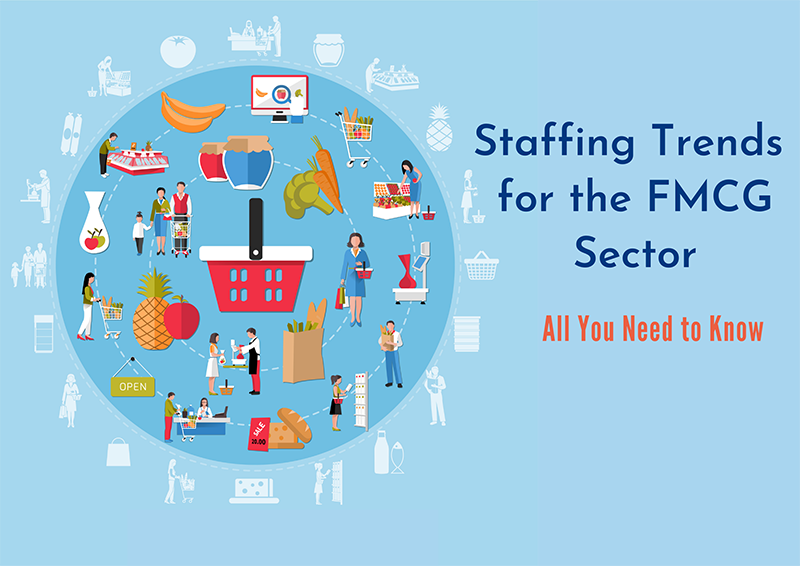[vc_row][vc_column][vc_column_text]The onset of the CoVID pandemic heavily impacted the fast-moving consumer goods sector. However, the Financial Express reports that there will be growth in 2021 and beyond, driven by the FMCG sector. Given that the sector is poised for growth, innovators and organizations have taken to practices that have changed the way the sector does business.
- Flexible Costs: To survive in crises, organizations have had to adapt and become more flexible with their finances and practices. Organizations have taken fixed costs such as rental, fixed salaries, utilities, and other overheads and transformed them into leaner, more flexible cost structures to deal with threats. One of the ways that these organizations and brands do so is by using staffing agencies to find suitable, short-term employees.
- Customer Retention Through Humanization: Given that competition has become tougher within the FMCG sector, organizations have had to adapt and develop inventive strategies to set themselves apart from other brands. Brands are investing in richer, more personalized experiences for their consumers and humanizing their brand to bring in and retain consumers, given that customer acquisition costs are high.
- Outsourcing: Another method that organizations turn to ensure that these organizations can focus on key tasks is outsourcing. According to a report cited in fortunly.com’s outsourcing report, about 70% of retail and transportation firms practiced outsourcing of all the surveyed companies. Organizations can use staffing services that will provide effective staffing solutions for all their needs, allowing them to focus on other key areas. Apart from staffing, organizations have begun to outsource other vital practices such as sales, marketing, and logistics, which have cut operational costs and fostered healthy relationships with trusted partners.
- The eCommerce Boom: The pandemic has pushed consumers to the world of eCommerce, altering the way they went about buying necessities. Frost & Sullivan reported that the number of online transactions for groceries and takeaway food in the Asia region grew by between 50 and 400 percent from March to May in 2021. Many FMCG brands have made the pivot to online spaces and made their products more visible and accessible to their consumers.
- Packaging and Shipping: DTC brands are attempting to set themselves apart in a highly competitive e-commerce space through automated shipping and fulfillment. Brands have now begun to improve the way orders have fast, free, and sustainable shipping to their consumers. Brands have also harnessed social media and trends such as the unboxing video phenomenon as advertising and marketing.
- The Rise of the Gig Employee: An area that the FMCG sector will have to contend with within the near future is the rise of India as a major gig-based economy. The FMCG and pharma are poised to see a growth of 69% from 15% over the next two years, according to a 2020 survey by Aon. This will leave organizations and brands in need of new talent. Given that a gig-based economy is poised to dominate the marketplace, organizations can look at contract staffing as a potential solution. Organizations can find the best employees for short-term contracts or specific assignments that will suit their requirements.
- Research and Analytics: According to a report by the India brand equity federation on the state of the FMCG in 2021, the sector is India’s 4th largest sector. Growing awareness, easier access, and changing lifestyles of consumers have been major growth drivers. Organizations will need to be in tune with these factors and research them and adapt accordingly.
[/vc_column_text][/vc_column][/vc_row]









